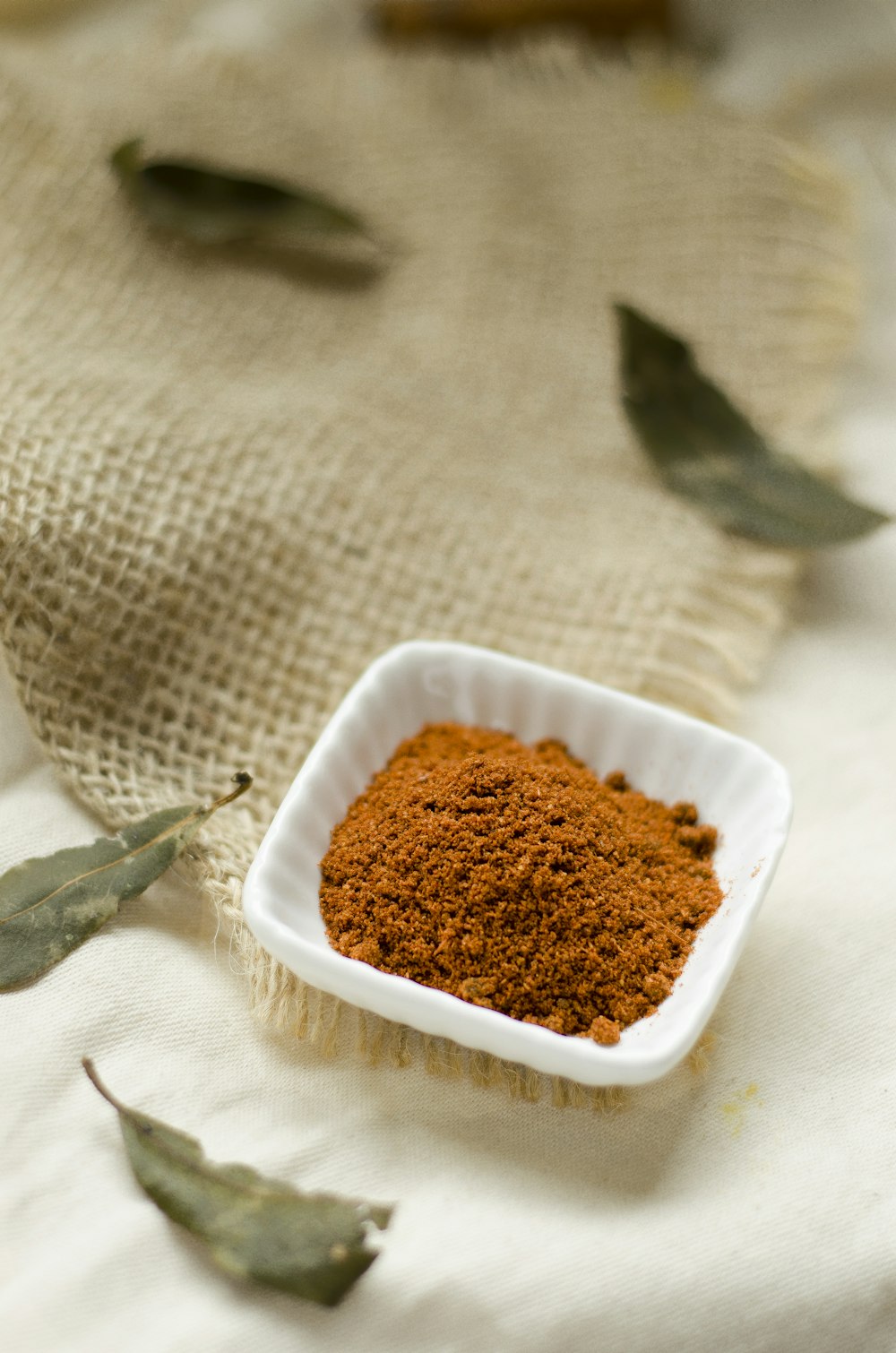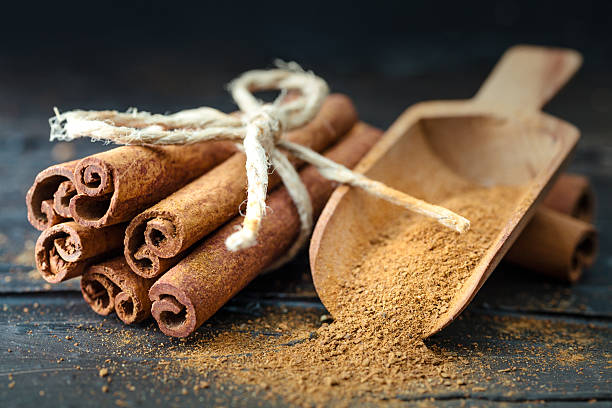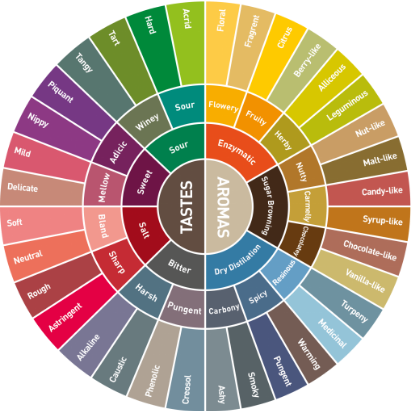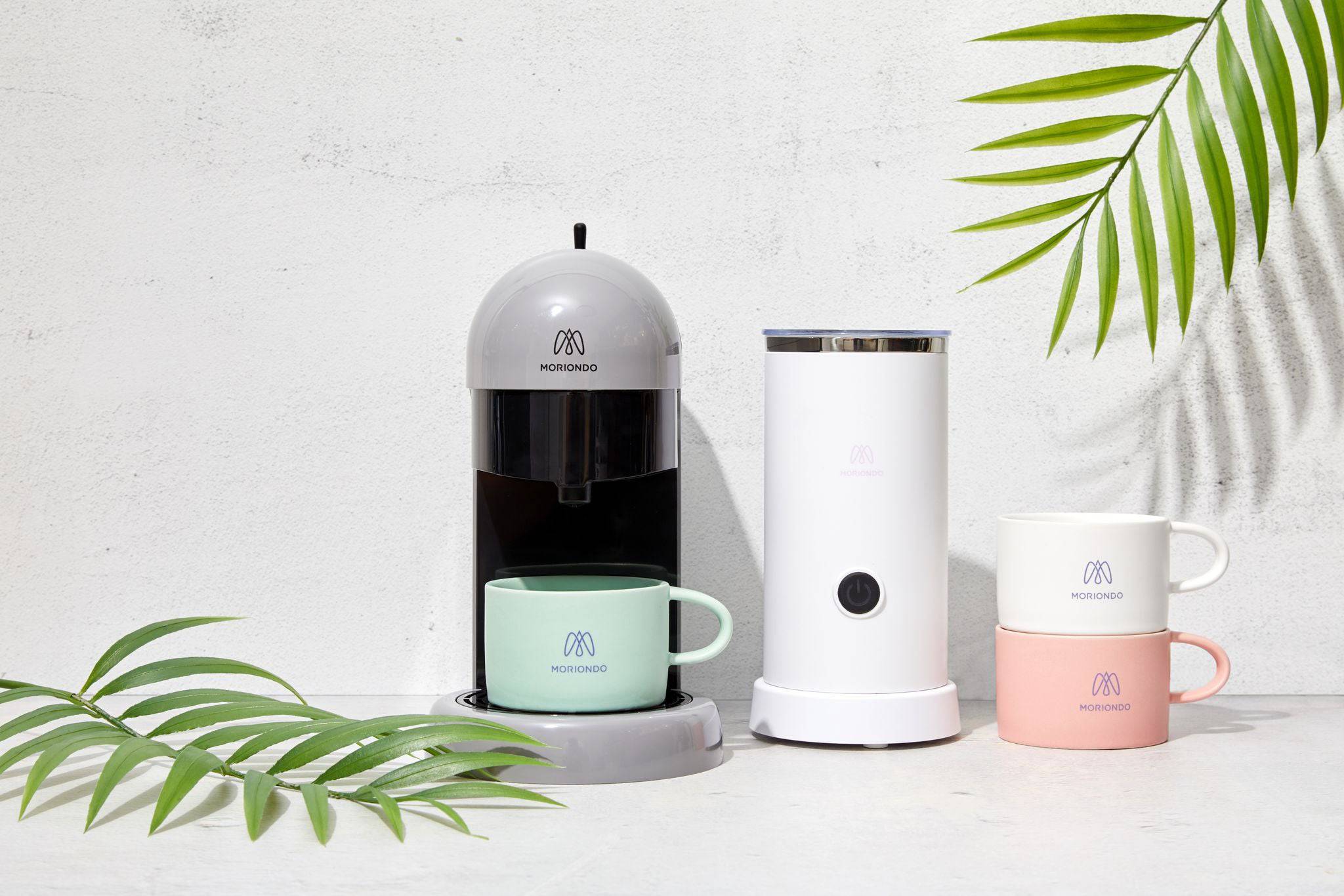Benefits of Cinnamon in Coffee
Table of Contents
There are innumerable coffee ingredients that you may have developed an interest in over time, but of these, cinnamon is on a completely different level in terms of health benefits.
Only a small handful of things sound better than a warm brewed cup in the morning containing a rich cinnamon texture.
When you add cinnamon to coffee, all your senses will wake up and provide you with the health benefits, drive, and energy necessary to begin your day on the right foot.
Not only is it a delicious trend to add cinnamon, but it also makes for a combination in morning coffee that works extremely well for your health benefits.
Although you may have heard or have some interest in trying this mix, you will be extremely motivated once you understand the key benefits of cinnamon in coffee and how it improves your well-being and health.
Aside from it being a flavorful ingredient that is free of caffeine, it's a way of adding sweetness to your morning coffee without the need to add sugar.
Vitamins and minerals

Cinnamon goes beyond sweet taste to include beneficial vitamins and minerals essential to personal health benefits.
In fact, a cinnamon stick can provide more nutrients than others, delivering calcium, fiber, iron, vitamin K, and manganese.
It takes as little as a teaspoon to see meaningful effects in cinnamon coffee, and it keeps blood sugar levels stable.
Weight loss

When it comes to the effects of cinnamon on the body, sticks are commonly used.
Not only will black cinnamon coffee aid you in feeling awake and energized, but it can also contribute to the trimming of the waistline.
Mixing cinnamon with coffee is an incredible method for suppressing the appetite to reduce cravings and consume fewer calories throughout the course of the day.
Furthermore, the caffeine that will likely be present in the coffee itself, regardless if a cinnamon stick is added, is also a natural suppressant in this category.
It naturally curbs hunger throughout the day to prevent the desire for snacking.
Another key benefit of cinnamon powder is the natural regulation of the body's insulin levels, lower blood pressure, increased energy, and lower cholesterol.
Due to the fact that hunger is traditionally caused by insulin spikes in the bloodstream, consuming coffee with cinnamon is a fantastic way to maintain a stricter diet.
Ceylon cinnamon lowers hunger in regular hot drinks and a morning cup of coffee.
Antioxidants

The term antioxidants are commonly spoken in the medical community, with lots of available information online for the past ten years.
Cinnamon flavor has high concentrations of antioxidants.
These are miracle workers in terms of your well-being and health, slowing blood sugar spikes.
As a result, one of the best ways to absorb their nutritional value is to include cinnamon in your cup of joe.
When it comes to the benefits of cinnamon-based drinks, antioxidants are strong.
They help rid the body of free radicals, also known as small compounds responsible for cancer, cell damage, and arthritis.
The more you include antioxidants in the diet, the simpler it will be for the body to eliminate free radicals.
Fortunately, coffee alone already includes an abundance of antioxidants.
Yet, research has determined that cinnamon is even richer in them, adding all the more benefits to the brew.
Lower risk of heart disease

Cinnamon is very healthy for the heart. In fact, research has determined that both cinnamon and coffee help reduce the body's risk of developing heart disease.
Moreover, studies concluded that a consistent daily consumption of caffeine helps to lower heart disease by 15% in comparison to those who abstain.
In a similar fashion, cinnamon is effective in protecting from heart disease. Regular drinking or eating of cinnamon unclogs the arteries by up to 30%.
You will see a great improvement in your heart's health when you include cinnamon in your coffee on a daily basis.
Improve your mental capacity

Another key benefit of adding cinnamon to coffee is an empowered mind. Those that already consume coffee know that having a brew improves focus and the ability to pay attention.
This is due to the fact that caffeine increases levels of epinephrine and norepinephrine in the bloodstream.
These hormones affect your fight or flight mechanism, positively impacting your ability to focus.
When dealing with hormones and cinnamon, the ingredient improves the ability to perform tasks that are mentally engaging and delivers more energy necessary to process information.
Cold symptoms

If you are dealing with the flu or cold and desire a natural remedy for the relief of symptoms, cinnamon coffee will work wonders.
Consuming a hot beverage like coffee will naturally soothe a sore throat and fight congestion.
Furthermore, cinnamon has been clinically proven to reduce concentrations of mucus which happen when you have a cold.
Cons of using cinnamon in coffee

Even though it is considered generally safe to include cinnamon in your coffee, you should always keep in mind that having anything in excess is bad for your health.
In an ideal world, you need to be adding moderate amounts of cinnamon.
This means nothing more than a single teaspoon.
Having excess levels of cinnamon will force coumarin levels to spike, a compound linked to liver damage and an increased risk of cancer.
In order to prevent the downsides of cinnamon, you need to moderate how much you add to your coffee every day.
In addition, you need to bear in mind that having too much cinnamon can also result in the development of mouth sores.
Cinnamaldehyde is a common human allergen, and overconsumption of this compound can trigger painful mouth sores that will make your day uncomfortable.
If you notice when this happens after you drink coffee with cinnamon, you should consult a medical professional to determine if you have an allergy.
Return to regular black coffee until then.
How to add cinnamon to coffee

There are various methods to add cinnamon to your daily cup of coffee.
One of the best ways includes adding ground cinnamon to the beans and then proceeding to brew as usual.
You should avoid adding cinnamon after the brew, as this often results in clumping.
Furthermore, you need to be aware that cinnamon clumps filter paper, so if you make coffee that's pour-over, you may discover a reservoir.
If you have decided, after brewing coffee, that you need to add spices, the best way to achieve this is to allow the dispersal and dissolving of the cinnamon in the milk prior to adding it to your coffee.
Cinnamon dissolves easily in this liquid and prevents clumping.
The best way to include cinnamon in a cold brew is by using sticks, as they stop the filter from clogging.
Break these cinnamon sticks down into little pieces, then place them with the grounds and brew as usual.
Takeaway

Adding cinnamon to your daily cup of coffee goes beyond a wondrous, lovely aroma that smells amazing in the morning; it even tastes amazing.
In addition to being delicious to taste, it has tons of beneficial health properties that can help you to become a better person.
Both coffee and cinnamon are chock full of antioxidants, great for your health, protect your heart, and can help you feel better when you suffer from the flu or a cold.
If you desire to turn your coffee into the healthiest morning beverage with the highest potency, including cinnamon is a stellar idea.
Good Tasting Coffee: How to Identify Coffee Flavors

In order to appreciate the different types of coffee available, it's important to cultivate an awareness of its unique characteristics. Let's take a look at the way coffee connoisseurs judge different cups of coffee.

Aroma
The scent of a cup of coffee has a direct influence on how we perceive its flavor. As you drink coffee try to notice if the scent is smoky, fruity, earthy, spicy, nutty or grassy.
Acidity
One of the most defining characteristics of a cup of coffee is its acidity. This is the sharp, bright tangy quality of coffee that perks up our senses. Coffee doesn’t necessarily contain just one type of acid, either. It may contain citric acid, malic acid (fruity in flavor) or even quinic acid from stale coffee, which gives us stomach aches.
Body
This is the weight, thickness and texture of coffee in your mouth. The body of different types of coffee falls on a spectrum of light- to full-bodied viscosity (thin to thick).
Flavor
This is where comparisons come in handy and there is some overlap between aroma and flavor. Your coffee might taste bitter, sweet, savory or sour with common comparisons to chocolate, wine or fruit.
Related Posts
















